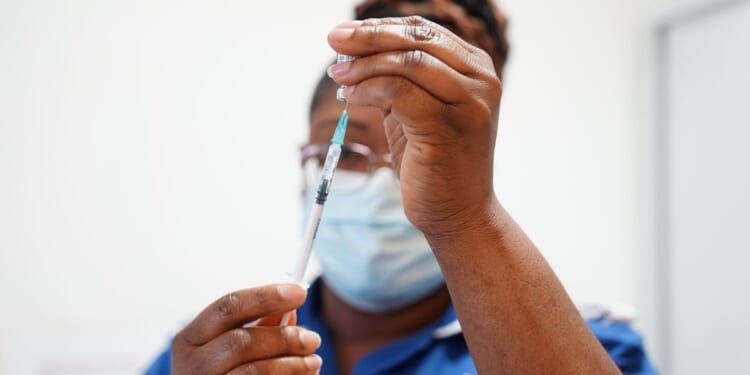A Labour-run council in London has been allowed to vaccinate an eight-month-old baby – against her mother’s wishes.
The mum launched a legal battle against Islington Council after it arranged for her baby daughter to receive routine jabs while she was in the authority’s care.
Known only as “Ms S” throughout the High Court battle, the mother had refused the vaccinations because she believed there to be a link between the jabs and autism.
Due to concerns that her mother could not meet her or her older siblings’ basic care needs, the baby girl, known only as P, has been under the council’s guardianship since February.
The mother was described as “sporadic and inconsistent” during her interactions with health professionals and social workers.
Test results from March also showed Ms S had been drinking frequently and heavily, as well as consuming illicit substances.
In July, suggestions were made for the girl to stay with her mother at their family home under supervision until a decision was made as to the whether the child would be taken out of her mother’s care permanently.
During that time, the mother refused to vaccinate her daughter.

The woman refused to have her baby vaccinated but the council stepped in
|
PA
When the local authority attempted to carry out the appointment for the jabs out of concern for the child’s welfare, Ms S took the case to the High Court.
The court heard from the mother that she was convinced there were links between vaccines and autism or ADHD.
She added that she believed children from ethnic minorities were particularly vulnerable to adverse effects.
Ms S said although she had seen proof online to suggest 4,500 children had died from preventable diseases, she deemed this a low risk when considering the large child population of the country.

Ms S took the council to the High Court over their decision
|
PAMr Justice McDonald, the judge, “gently” told the mother that no scientific studies proving the link between vaccines and autism existed.
However, Ms S insisted it was her right to decline the jabs, arguing her daughter was “too tiny to be pumped with vaccinations with all those chemicals”.
She added that she may consider having the child vaccinated when she was older.
After the judge suggested her daughter may be at a higher risk of death if she remained unvaccinated, Ms S told the judge that no one knew what would happen in the future.
Mr Justice McDonald ruled in favour of the council, saying that by leaving her unvaccinated, the girl would be put at risk of childhood disease “at a very young age when she remains vulnerable”.
The judge added that there was no evidence to suggest that this was not in the best interest of the girl.
Under the Children Act 1989, local authorities have the power to arrange for children in care to be vaccinated despite objections from their parents.
Though vaccinations are not legally mandatory, the NHS strongly advises parents to follow its routine schedule of jabs for babies under the age of one.
This routine starts at eight weeks and protects children from diseases such as measles, tetanus, diphtheria and whooping cough.

















